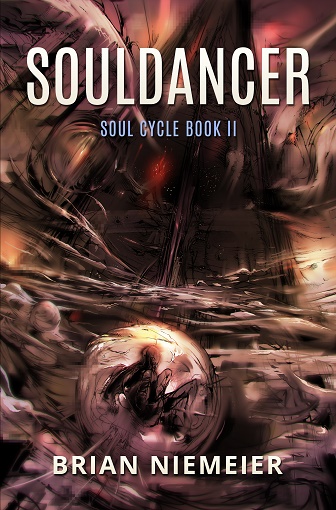Souldancer Is Here
Here is a book launch announcement from my fellow superversive SF writer, Brian Niemeier. He and I should go to an English pub and start a new circle of Inklings for the Twenty-First Century. The words below are his:
Thank you, Mr. Wright, for lending me the use of your blog to announce the release of Souldancer, the second Soul Cycle novel written by me and edited by the lovely and talented L. Jagi Lamplighter Wright.
The series’ first book, Nethereal, has exceeded my sales expectations and far surpassed my wildest fever dreams of reader praise. I owe a debt of gratitude to the readers and proprietor of this blog for Nethereal’s commercial and critical success. I have full confidence that we can make Souldancer’s launch even bigger!
Perhaps I should have anticipated the fans’ reaction. Like many of you here, I was an avid fan of science fiction and fantasy in my youth, only to be repulsed by the Morlock convergence that corrupted genre fiction into an organ of anticivilization propaganda.
In truth, I never meant to write books at all. Only after years of starving for honest stories that prioritized fun above burning the Motherhood Statement did I take matters into my own hands and start penning the kinds of stories I wanted to read.
It turns out I’m not alone. There are many who’ve been betrayed by the gatekeepers who were charged with curating science fiction and instead subverted it; many who hunger for the (dare I say it?) superversive.
“Climb down off the grandstand, kid,” I can hear you saying. “Superversive SF is about heroic courage in service of the true, the beautiful, and the good; not about lycanthropes vaporizing—and being vaporized by—psionicists in a postapocalyptic world.”
In response to which I have only one question: why can’t we have both?
It’s the neo-Puritan komissars overseeing the decline of old school fandom who insist on fitting every story into a premeasured, uniform box. So I make no apologies for writing books that feature sword fights, space battles, and monsters to express themes of hope, mercy and ultimate morality.
Sci-fi may be informed by a certain brand of secular pragmatic optimism, but horror—at least in the West—has always had Catholic roots. What is vampirism but a diabolical parody of the eternal life promised by Christ to those who love Him? Instead of eating the divine flesh and drinking the precious blood of the Creator who never suffers reduction or diminishment, the vampire is doomed to cannibalize fellow creatures to sustain his living death.
Science fiction, for all its virtues, originally arose from Modernism, which claims the power to perfect Man without Christ. Horror, for all its vulgarity, evokes fear by showing us the darkness that descends when we turn away from Christ. (The Parable of the Rich Fool meets many criteria of a horror story.)
Combining the two genres can yield fascinating results, to say the least.
But most of all, it’s just downright fun.

